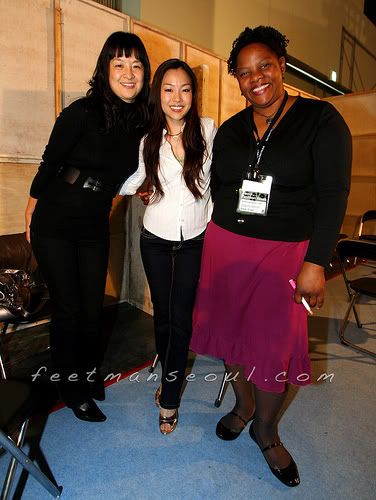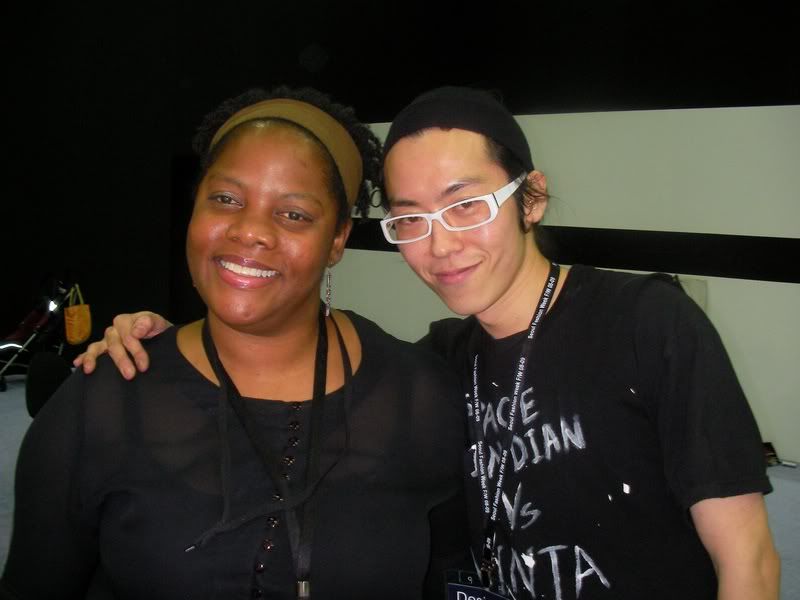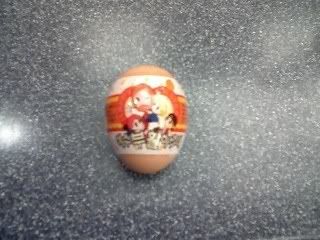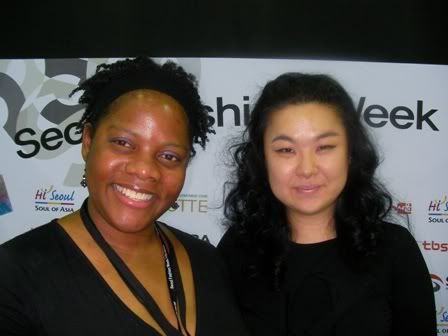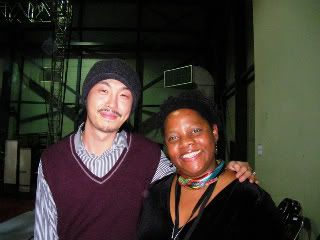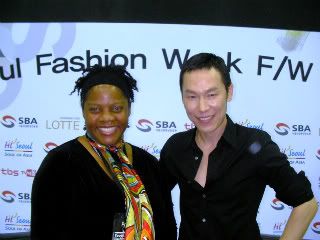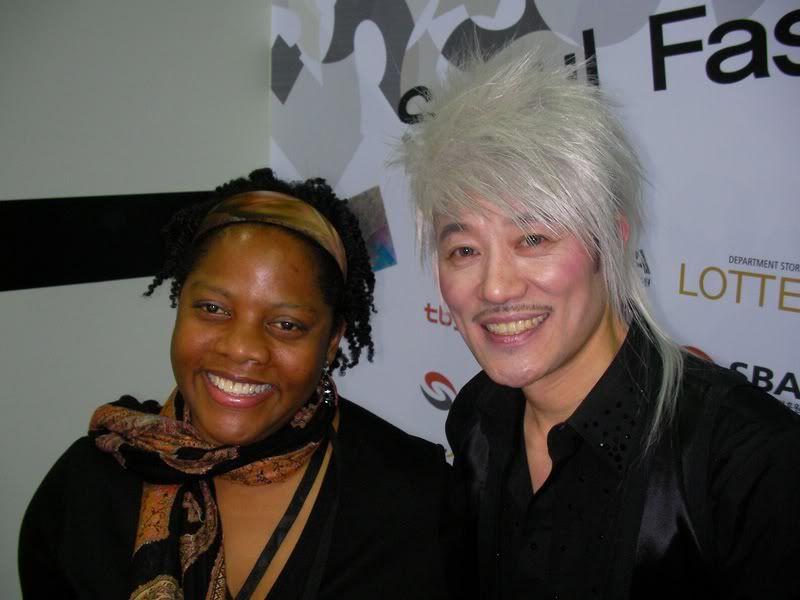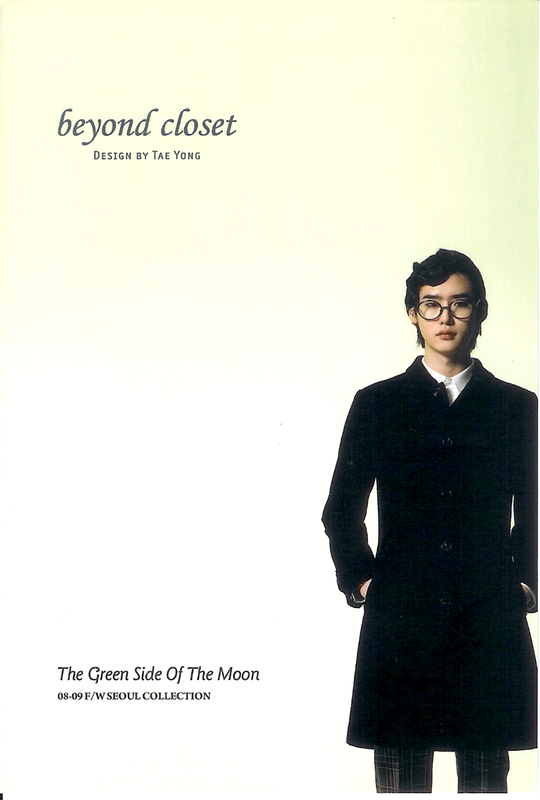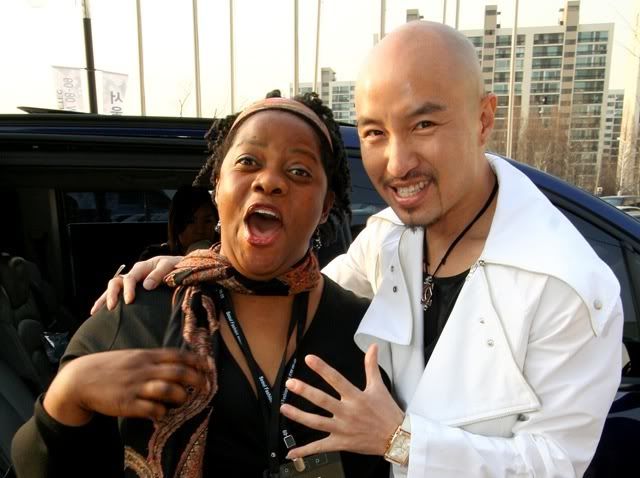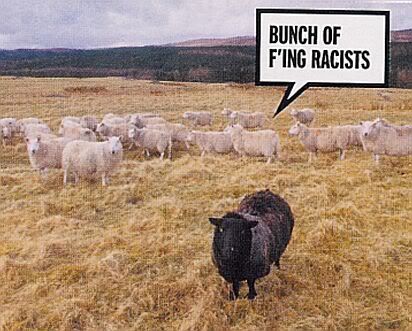This is another post that started as an update but took on a life of its own.
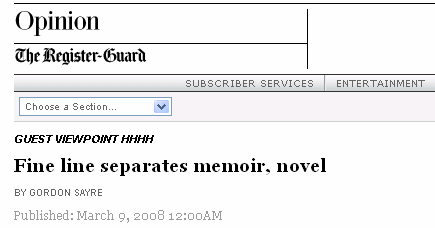
I got the link to Gordon Sayre's article: Fine line separates, memoir. Again, thanks to Kate over at FishbowlLA.
Sayre was Seltzer's Native American literature professor at the University of Oregon. He says that Love and Consequences is:
...a powerful story of a young girl coming of age, and features much better dialogue than most first novels can achieve. The members of her foster family, as well as others in the South Central ’hood, all emerge as complex characters.
That's great. In fact, that's exactly what I said about
Love and Consequences when I heard about this story. I said she had to, at least, be a
good writer.
She had to be a good enough writer to convince her publisher that her story was real. Sure, there was the lurid fascination from the publisher that a white girl lived this life. But Seltzer's writing skill would have to be good enough to get across the emotion and drama she was selling in the story and convince these people that she'd done and seen these things.
He goes on to use how the scandal surrounding the authenticity of
"The Interesting Narrative of the Life of Olaudah Equiano, or Gustavus Vassa, the African, Written by Himself" illustrates that we shouldn't be upset that Seltzer is a huge liar.
...in 1999 scholar Vincent Caretta brought to light two documents, including Gustavus Vassa’s baptismal record, on which he said that he had been born in South Carolina, not in Africa. Some scholars refused to accept this evidence that a prominent African-American author and abolitionist had fabricated the story of his own childhood, while others were forced to read his account in an entirely new way.
The Equiano saga suggests how readers’ sense of indignation (or should we say, embarrassed credulity) can be heightened where race is involved. Some African-American commentators saw in this week’s events a white woman exploiting white readers’ fascination with gangland culture. The book’s editor and publisher scrambled to defend themselves. Yet we should be skeptical of claims from all parties that they wish to defend the cause of truth.
Well, had Olaudah Equiano, or Gustavus Vassa, the African lived in this day and age, it would be easy to flush him out as a fraud or to verify his story. That is something Seltzer forgot, but others didn't.
What kind of stupid are we growing on trees these days? Do they not realize that the internet will find your shit out in less time than it took you to come up with your bullshit idea?
My sentiments exactly.
Maybe she knows about Olaudah Equiano, or Gustavus Vassa, the African's autobiography or others in history where the author's credibility is questioned and decided "well, they did it, so can I." However, she forgot about James Frey's. No, in the day and age where someone can
Google you and find out tons more about you that you want. This has much less to do with race than Professor Sayre says. No, in this day and age it's near impossible to get away with a big fat fraud about your life no matter what color you are or, more accurately, no matter what color you claim to be.
As others have said, I'm not really bothered that people lie.
We’ve all lied before. OK, big deal. But to tell a whopper like this? How did Seltzer expect to get away with it? Does the publishing house have fact checkers? Weird woman.
Whether we want to admit it or not, at times, we all lie. I'm bothered when the lie takes on such huge dimensions that it crosses a line from stretching the truth to taking on a completely different character.
Had Seltzer fashioned this maybe as a white girl who got pulled into the gang life after going across town, learning about and getting to know the people in it, fine. That seems to be closer to what really happened. No, she rolled it way back and made up a childhood for herself that is not true. Maybe that's the difference between an immaterial and material fact. Someone flush that distinction out for me. It's Monday morning here in Seoul. I've got a long day ahead of me and not a lot of time to flex my philosophical, English lit., and legally-honed language parsing muscle.*
Every memoir or autobiography is an individual’s fashioning of his or her life, directed toward that individual’s conception of audience. The more intimate or psychological the events recounted — of childhood trauma, of addiction, of religious conversion, or even of racial identity — the more ludicrous it is for readers to insist upon documentary truth.
So it is no accident that the notorious recent memoirists J.T. Leroy and James Frey also wrote accounts of lives on the margins of society, feeding readers’ lurid curiosities or morbid fascinations.
If a reader accepts such stories as true, he or she should examine why these memoirs are so enticing and convincing. Don’t take the publisher’s word for it, and don’t judge a book by its cover.
Riiiiiiiiiiiiiiight, but this is a very simple issue. As they say where I'm from, "don't get it twisted" and Professor Sayre, you've got it twisted.
Was it marketed as a memoir or was it marketed as a powerful first novel? It was marketed as a memoir.
She was giving interviews saying
she'd lived the life she wrote for her character. I understand that some writers will get so involved that they'll take on aspects of their characters life or lives. So, okay, Seltzer is a method-actor novelist. But that's just an eccentricity. In fact, that eccentricity could be something she could have marketed for interviews and a book tour...for her novel.
However, Seltzer took it to the point of fraud. She signed contracts and promised her very clueless publisher that her story was, indeed, based on fact.
What's funny is my life in South Central L.A. was Ozzie and Harriet-esqe: two cars, mommy stayed at home while daddy worked and I had a square meal on the table every night while, at certain times, shots rang out down the road. That's where my caustic, wry and, sometimes, slapstick sense of humor comes from, I guess. It comes from seeing my parents struggle to make life as normal as they could for me while we all knew that outside the borders of our home a very different world surrounded us.
What irritates me about Sayre's former student is she's spun a tale but said she was there. SHE WASN'T THERE! Sure, there are gang bangers in the 'hood. I know this only from a distance because my parents worked hard to keep me isolated from it, but Seltzer marketed her story as first-hand experience. No, if anything, that experience was second-hand, if not third- or fourth-hand knowledge.
With all due respect Professor Sayre, readers understand that things might be intensified for effect. However, the point remains that the things they read about are, or should be,
based on fact. All writers are taught to anticipate their audience, but the point is Seltzer lied. She shouldn't have even if that means it would have been harder for her to publish
Love and Consequences. I don't doubt it could have been marketed as a novel, it wasn't.
So, yes, now the book is gone. I've ordered a copy. I'll read it. Should anyone want it maybe for the good of literary society, since Professor Sayre believes it will be a significant loss, I'll go ahead and scan it for all to read. However, maybe he ought to do that. He's got more resources than I do.
Update 1: March 13, 2008 @ 8:53am
Usually, I put my updates at the top. However, this one is a bit off topic. I've decided to put it in this post because I see Sayre as an enabler. I also see Musico, the person who referred Seltzer to her literary agent as someone cut from the same cloth. I won't deny that the criticism of her has been harsh. I think that's a combination of the subject matter that she deals with, feminism and racism, and the fact that if it weren't for her maybe Seltzer wouldn't have gotten an agent in the first place. I think Musico was conned like everyone else was conned and the ultimate responsibility lies with the publisher and the agent to flush out the people trying to pull a con.
With that said
here is a link to an article which talks about her reply and links to her blog complaining about the tough words aimed in her general direction.
_________________________________
David Glenn, thanks for the lengthy quote:
Chronicle of Higher Education - Untruth and ConsequencesMore links:
GalleyCat:
Margaret Jones Punditry Devolves Into FarceFishBowlLA:
Margaret Jones /Peggy Seltzer's Childhood on the Reservation/Professor DupedKevin Allman:
Margaret Jones' Diaries: truthiness and beautyGalleyCat:
JT Leroy's Legacy Blown Out of Proportion?______________________________________
*Yes, I'm putting my education out there not to brag, but for effect. What irks me I think the most about Seltzer's yarn is how she chose to devalue education because that fake life she claimed to have taught her so much more than school books could. Uh, huh.
As we all can see, clearly, she could have benefited from actually taking an ethics course along the way and graduating.
I also believe that the people she chose the write about, people like me. My people in South Central L.A. have much to gain from working to get ourselves educated.
I'm just spelling it out because you'd be amazed the conclusions people can sometimes jump to on the Internet based on a few words. ;-)
Read More...
Summary only...
Sphere: Related Content
The op-ed section of Eugene, Oregon's Register-Guard squeezes a few more inches of copy out of the scandal surrounding their local literary fraudster, Peggy Seltzer, with one more op-ed about Love and Consequences. Veteran journalist John Hurst takes a couple whacks at the handful of university professors who, in his characterization, "have been circling their academic wagons around her... with spirited public defenses of Seltzer’s moral right to lie." In addition to Gordon Sayre, who defended Sayre's lies as valid self-expression, there's been the but-it-was-so-beautifully-written defense and the at-least-it-wasn't-boring defense... all of which leads Hurst to suggest facetiously that maybe journalists should embrace a more freewheeling attitude towards the truth.




